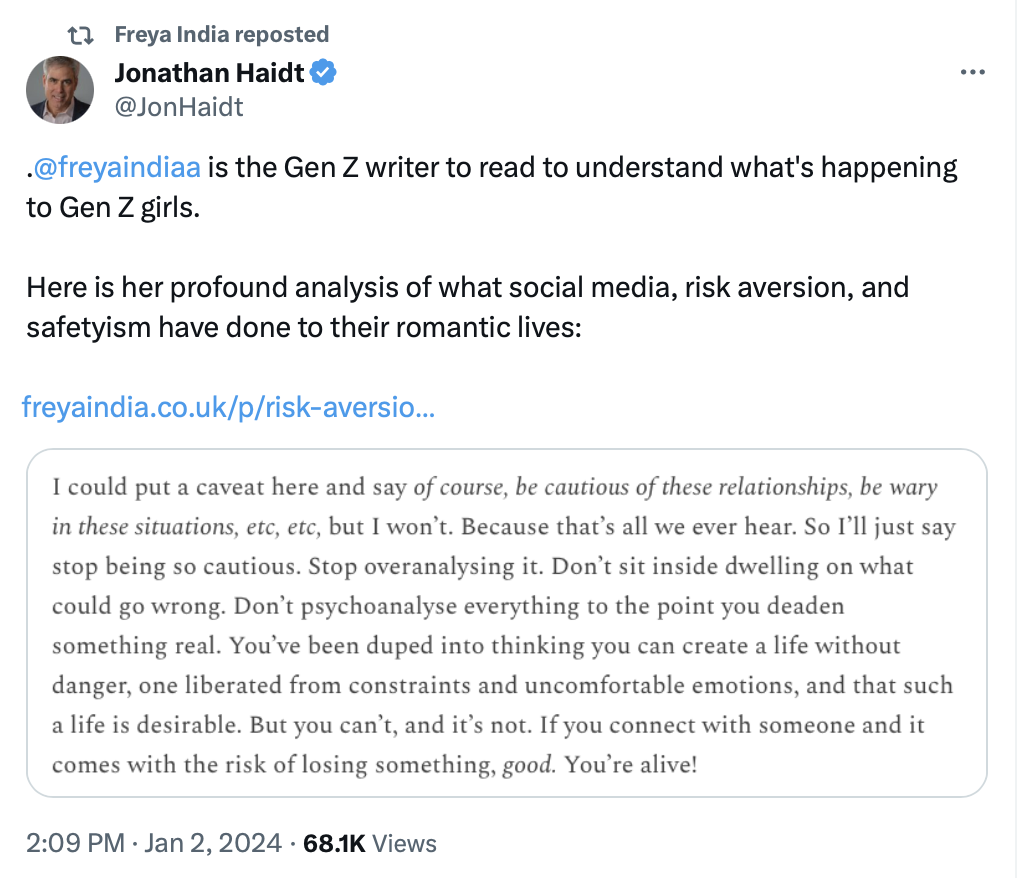About Love Blindness
Biologist Steve Stewart-Williams:
When male fruit flies are courting females and close to mating, they become so fixated on the task at hand that they often fail to spot approaching predators. The phenomenon is known as love blindness.
I can think of some intriguing hypotheticals!
I subscribe to Stewart-Williams and highly recommend it. It is titled the Nature-Nurture-Nietzsche Newsletter.
Here are two more of the tidbits he offers this week:
A large, longitudinal study found no evidence that violent videogames make people more aggressive or less empathetic. Playing violent videogames is correlated with aggression. However, rather than violent videogames making people aggressive, people who are already aggressive gravitate to violent videogames. [Link.]
According to a fascinating new paper, people tend to assume they have all the information they need to reach a conclusion or make a decision. In a preregistered experiment, participants who were given only half the available information were just as confident in their decisions as those who were given all of it. The authors dubbed this the illusion of information adequacy.

